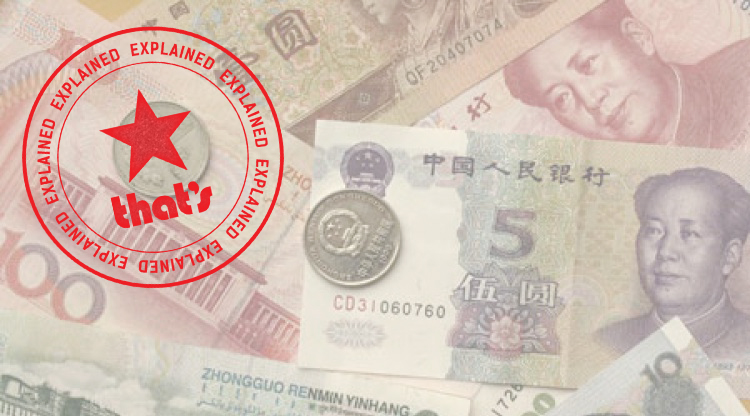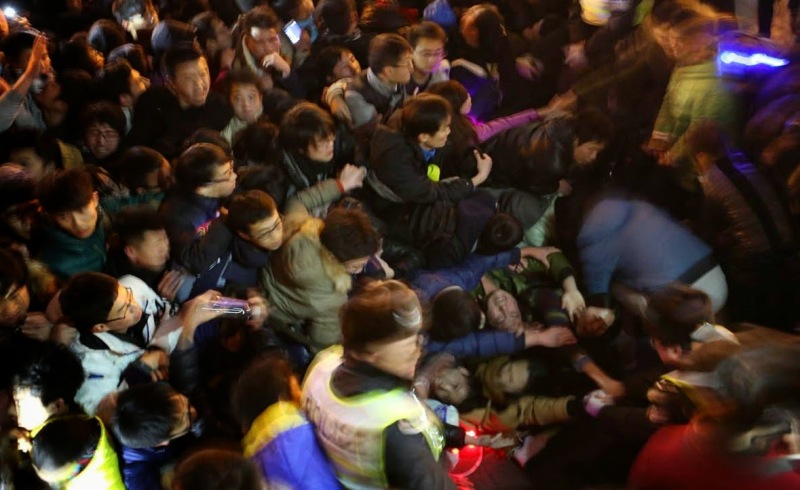It “helped the Chinese Communist Party win the anti-Japanese and the civil wars, and construct prosperous socialism in New China.” It is also, according to author of Red Management Li Kaicheng, a great way to run your company. Some 60 years after Mao Zedong Thought instructed its adherents to better ‘Serve the People’ in Communist China, the Marxist-Leninist theory is today being used to teach aspirant capitalists to better their businesses.
In a restricted military base in Beijing, an audience is carefully listening to the story of how Mao oversaw the Red Army’s growth in the 1940s, despite the severe circumstances and extreme conditions. “It is all about management,” claims Li. “The management theory that comes from profound Marxist philosophy and practical experience.” Lectures on military training have been compulsory for undergraduates since 1994, as part of the post-1989 Patriotic Education movement – though usually only lasting one to two weeks. There, ideological and political classes are set beside physical training and exercise.
In this classroom, however, the students are all middle-aged, ambitious company managers, whose zeal and belief in Mao Zedong has convinced them that his theory on managing the Party could even be an effective business tool.
In Red Management, author Li defines the theory as something “created not only by Mao Zedong but also several generations of Communist Party members, based on traditional Chinese culture and Marxism. It was applied to managing the Party, army and country, and has proved to be truth.”
Red Management’s birth as a business began in 2003 and hit the big time with the ascendancy of then-Chongqing Party Secretary Bo Xilai, as the seeds of his new ‘Chongqing model’ spread in the steamy municipality – a political system purportedly based on social welfare, combined with revolutionary nostalgia. As leaders called on citizens to ‘Sing red, smash black,’ referring to the mafia coalition that had the southern city in its grip, offshoots of the movement, such as red culture and red tourism, began to blossom.
Even with Bo now awaiting trial, his political legacy in disgrace, Li still remembers those heady days. “At first, I guess there was just a lot of hype,” he says. “But no matter if it was hype or not, it was good promotion.”
A lecturer at Dong Fang Jun Heng (DFJH) school in Beijing, Li is a retired senior colonel and considered an expert in the field of Communist ideology and political management. It helps that his grandfather was Li Kenong, a major figure in the Party’s early years, who later became head of military intelligence and a Central Committee member in 1956. Li senior died of medical complications in 1962, untainted by the upcoming persecutions of the Cultural Revolution that his fellow officers would undergo.
Most of DFJH’s lecturers have military backgrounds or experience at one of the famous Party Schools of the Central Committee, which educate cadres and act as rare incubators of freeform political debate within an official capacity. In 2006, DFJH’s director Mi Yinghui quit all his other courses to focus exclusively on Red Management. Most of Mi’s clients are entrepreneurs who are sentimental about the Mao era. His courses are partly exercises in revolutionary nostalgia: in the two-to-three day intensive course (RMB6,800), students live in dormitories, dine in catering halls and pay group pilgrimages to destinations such as Shaoshan (Mao’s birthplace, see p20), Yan’an (cradle of the revolution), Ruijin and Zunyi (both well-known landmarks on the Long March). During these ‘Travel and Learning’ sections, the students wear Red Army uniforms and even carry bags of millet while climbing the hills to “deeply experience the spirit of the Long March.”
Mi thinks his fees are reasonable. “We charge the least in this field,” he points out. “Almost 100,000 people have had lessons with us.” Most seem satisfied – but few are as passionate about Mao Zedong as Mi himself. “Maoism contains some truths that will live long in human history,” he declares, adding that he is confused and worried by China’s “messy social values.” “I don’t understand why topics about Mao Zedong are blocked online during the big meetings,” he complains at one point.
Red Management focuses more on managing people – and how they think – than building up company structures and discipline, as hypotheses in Western economics and management usually do. According to the theory, humanity is not selfish and, with the right leadership, can be directed to think and act for a collective interest. Mao’s success in the Long March, his fight against the Japanese and his victory against the Kuomintang are taken as ultimate proof of the theory’s effectiveness.
For Li, this focus on people – or more precisely, building up common interests between employees and watching closely what they think – is key. “The Chinese don’t have the Germans’ strictness, the Japanese carefulness, nor the Americans’ creativity,” Li sweepingly explains. “To excel, a method that grew up domestically and proved effective is something worth adopting.”
Both Li and Mi hold up Huawei Technologies Co Ltd as a prime example of how Red Management could prove effective for modern companies. Founded in 1988, Huawei is presided over by the charismatic Ren Zhengfei, a former PLA officer and student of civil engineering, who left the army in 1987 when it disbanded its engineer corps. Like Mao, Ren avoided the tough sell of China’s big coastal cities and focused instead on the provinces, deploying vast numbers of Huawei salespeople to spread a message of cheaper, quality homegrown equipment.
Similar to Mao’s leadership style, Ren also focuses on a pure form of ideology, encouraging Huawei employees to sing red and insisting new recruits undergo a half-year training course, which includes a two-week ‘cultural induction’ designed to ingrain employees with a supposed ‘Wolf Spirit’ – all of which means its vast Shenzhen campus “can feel a bit like a corporate version of the Chinese Communist Party,” according to a report by The Economist.
Now the world’s second-biggest maker of telecom equipment, employing 110,000 people and worth US$30 billion, Huawei is a success story. But its perceived PLA links and deliberately fostered military image have also played into the hands of foreign lawmakers, happy to stoke fears that Huawei is an espionage front in order to block further investment in countries like the US – thus restricting Huawei’s worldwide vision.
And while Li believes that Huawei’s core Wolf Spirit – advocating ‘a sharp sense of smell, perseverance and aggressiveness, and group struggle’ – are the essence of Maoism, others take a more considered approach.
“Personally, I think Ren is a talented leader and Huawei have achieved a very good result so far,” says Malone Wang, a marketing manager at petrochemical multinational Shell. “However, their culture is not a master key to all companies. Much of its business has something to do with the government, so their good relationship with them is important. Maybe some things are done in a not-very-transparent way. Red theory is well applied in some countries, but I doubt if it could go further.”
Both Mi and Li believe the future of Red Management is “unlimited,” however, though neither is currently content. No matter how many people have taken their short-term training courses, they say Red Management has still not gotten enough attention.
As the theory matures, so they hope academic institutions will take it more seriously – though they have had little luck in this direction so far; Tsinghua University refused to co-operate with them, which Mi blames on foreign influences.
“It is the fault of those who are in charge of the university but have graduated from Western countries with prejudices,” he claims. “They are know-nothing guys.”
Neither is there an established consensus on the theory. There are “thousands” of other organizations offering similar courses, and many are taking advantage of red hype, warns He Chengfei, manager of Hongse Guanliwang.
“Everyone is claiming that they are the founder of this management-theory system,” He complains. “While, at the same time, there is no proof of who is the founder, or who has the highest authority in this field.”
Even between Li and Mi, there are major disagreements. Li believes the theory should expand to include Western ideas; Mi strongly disagrees. “The 2008 financial crisis started in the US and expanded over the world,” says Mi. “The US is doomed, the fundamental ideology of its economy and management is wrong.”
Meanwhile, Li is not even sure if the name is proper. “It seems to have an overly strong ideological color,” he admits. “But we couldn’t find a more suitable name. If we called it Management by Mao, I am afraid it is worse. Anyway – it is not solely created by Mao.”
For Mi, of course, Mao is behind all the primary principles. This divergence could lead to a rift in the leadership, much as divisions over the economic management of China’s agriculture policy split the Party in the late 1950s. Li is considering forming his own company to continue his research into the theory. “Maybe in the future, we can open classes to foreigners,” he enthuses. “It will be interesting to them. They should have a close look at what Chinese culture really is.”
Mi, meanwhile, is starting to show signs of the personality cult that once surrounded the late Chairman. “I personally despise those who betray the team, and try to establish their own business and fame,” Mi says, in an undisguised shot at Li. “And by the way, I want to know how much you will mention my school and my name in your article before I give you any more help.”























0 User Comments